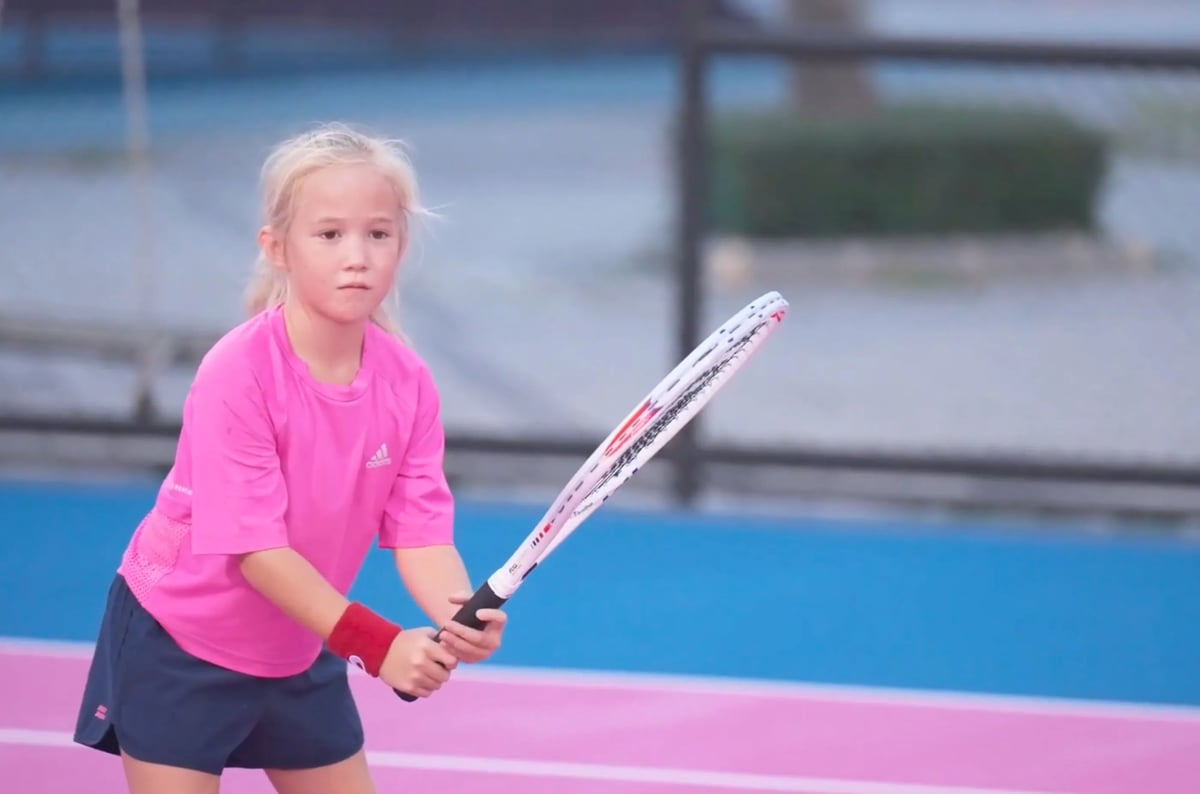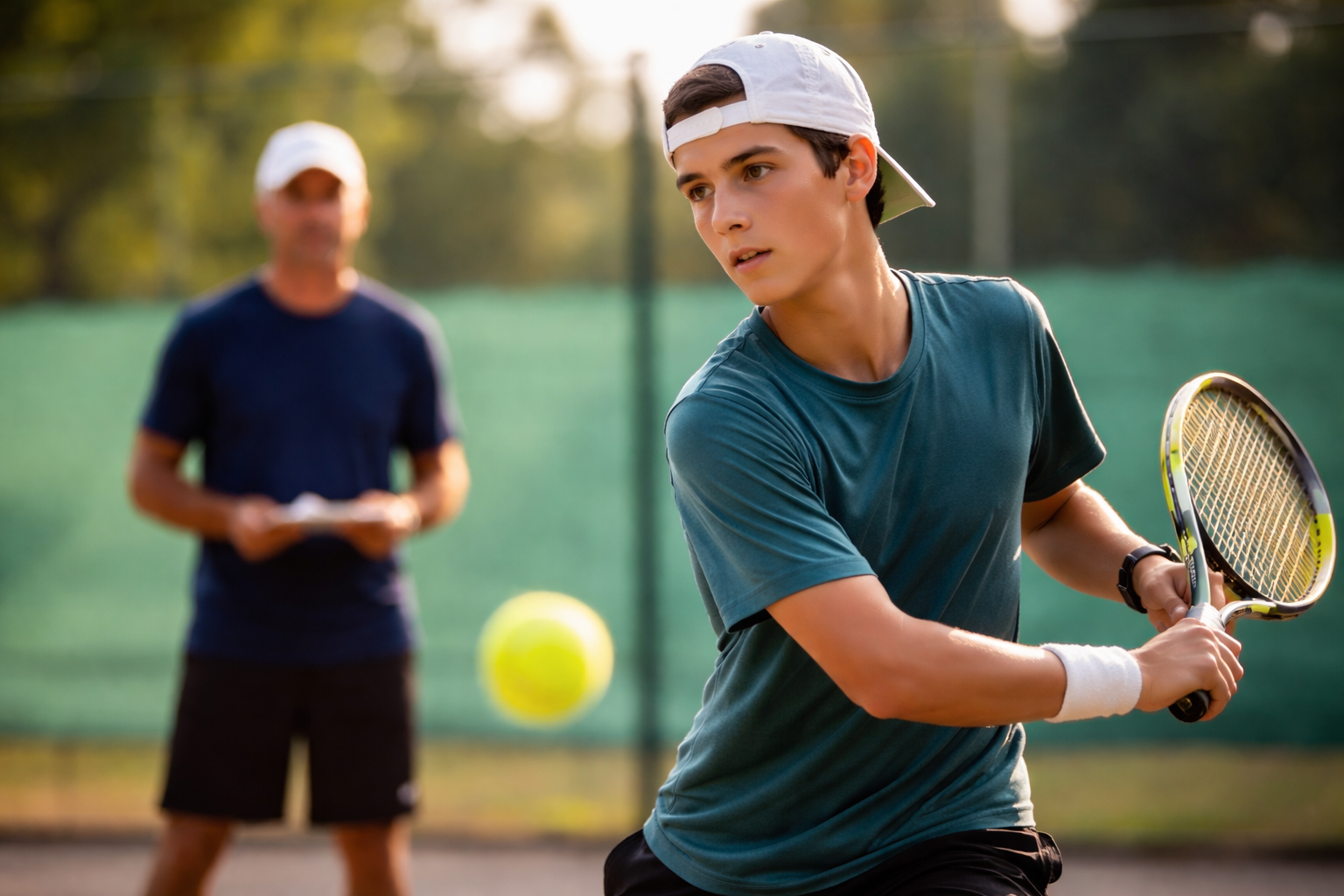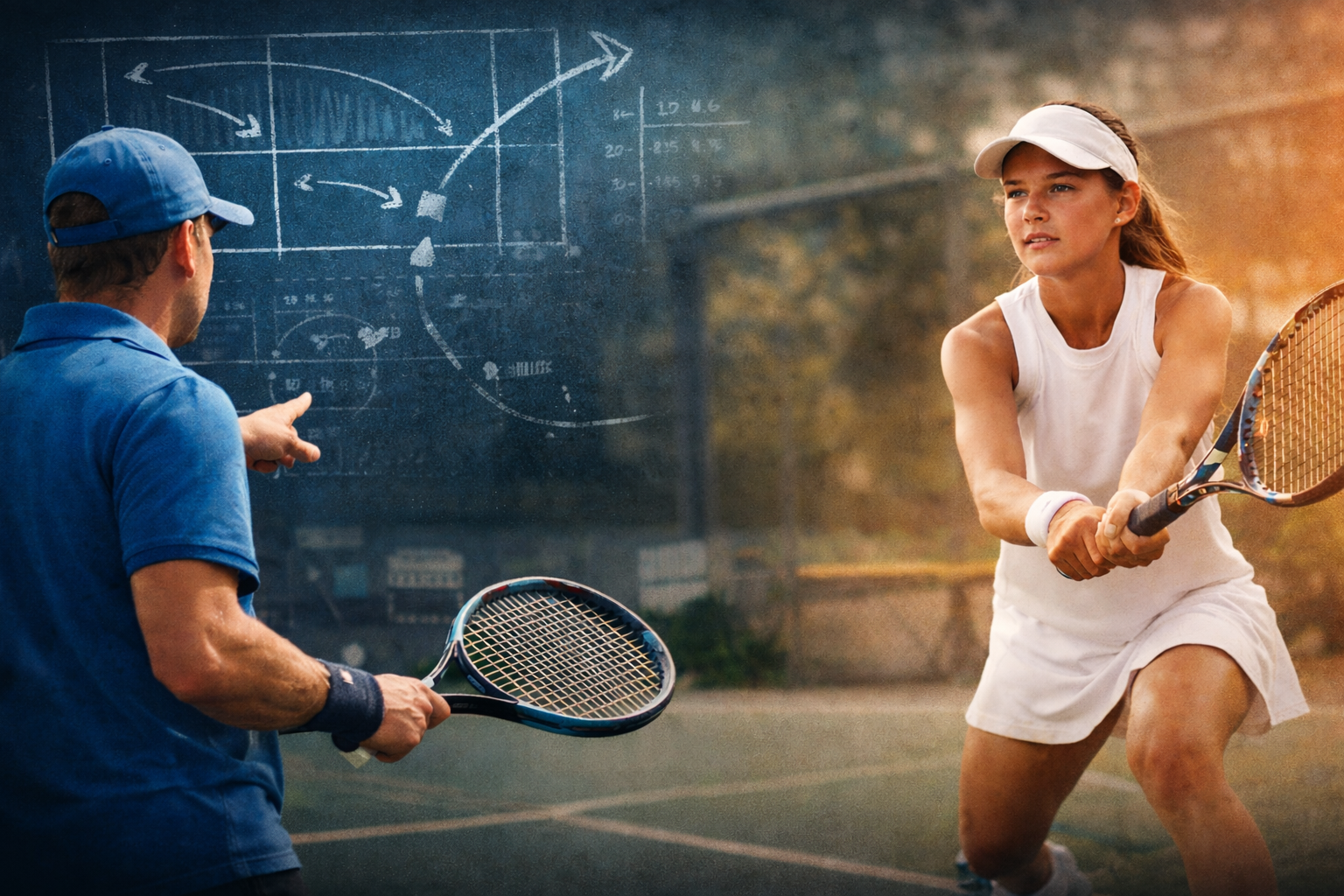
Why Guy Fritz Emphasizes Practice Matches Over Tournaments
I just got off the phone with Guy Fritz, the father and junior coach of Taylor Fritz (ATP Top 10) from the ages of 2 to 18. Many of you have likely seen his brilliant content on Coach Life, but what you might not know is that he also coached Coco Vandeweghe—a former WTA Top 10 player—from beginner level at age 8 through 16.
Guy is a former pro player himself and is widely respected for the technical foundation he built for Taylor. During our conversation, we discussed something that completely contradicts what most junior players, parents, and even coaches assume:
Playing more tournaments is not the key to success. Instead, playing frequent practice matches is the real path to player development.
Taylor played 4-5 practice matches per week outside of tournaments. His father didn’t put a huge emphasis on chasing points or rankings at a young age. Instead, he focused on matchplay in a controlled environment, which allowed Taylor to experiment with his game, work on strategies, and improve under pressure without the consequences of a tournament loss.
Let’s break down why playing regular practice matches is a better long-term approach than an over-reliance on tournaments.
The Right Balance: Who Should You Play Against?
Guy structured Taylor’s matches intentionally. He didn’t just have him play random opponents. Instead, he followed a simple but effective system:
1. One or two matches against weaker players → Builds confidence.
2. One or two matches against players of equal level → Simulates real competition.
3. One or two matches against stronger players → Forces improvement under pressure.
This mix ensures well-rounded development. Taylor wasn’t just getting beaten down by stronger players, nor was he only playing weaker ones. He was constantly exposed to different levels of competition.
At tournaments, Guy would approach other parents and coaches and ask if their players were interested in playing matches. This proactive approach ensured that Taylor never lacked competitive opportunities, even outside of official events.
The Problem With Playing Too Many Tournaments
Tournaments are essential for learning how to deal with pressure, but playing too many at a young age can slow development. Here’s why:
1. Tournament Travel Wastes Time
• A tournament often involves one full day of travel to get there and one full day back.
• If it rains, there may be long delays or cancellations.
• Many tournaments only guarantee one or two matches before elimination.
With practice matches, you control your schedule. Instead of wasting days traveling, you can play multiple matches per week while still training and refining your game.
2. Tournaments Can Stifle Development
• Many players don’t experiment with new strategies in tournaments because they fear losing.
• If you’re working on serve and volley or a new slice backhand, you probably won’t trust it in a high-pressure situation.
• In practice matches, you have the freedom to test and refine new weapons.
3. Constant Tournament Play Can Lead to Technical Weaknesses
When a player is away from their regular coach for weeks due to tournaments, small technical issues can creep in:
• Iga Świątek’s coach, Michal Krasnowski, noticed that her forehand grip became too extreme Western after long stretches of tournaments.
• Sly Black (Coco Gauff’s former coach) has talked about how too many tournaments affected Coco’s development—he and her father Corey Gauff later realized she might have benefited from more time for technical refinement.
Guy Fritz also faced this issue with Taylor—he originally taught him a semi-Western grip, but after many tournaments, it shifted to a full Western grip. Luckily, Taylor adapted, but these kinds of changes can be difficult to correct once ingrained.
Structured Match Play for Optimal Development
Nick Kyrgios’ coach, Todd Larkham, has a structured approach to match play that aligns with this philosophy. On Coach Life, he talks about a progressive three-phase training session:
1. Basket Feeding → Working on specific techniques.
2. Live Ball Drills → Practicing in controlled points.
3. Match Play → Implementing new techniques under pressure.
At many tennis academies, players only play first to 11 point drills or short sets instead of full matches. This isn’t enough. Players need to be playing best-of-three set matches 2-3 times per week.
By doing this, young players:
✅ Learn how to think about strategy.
✅ Develop their own game style.
✅ Gain the mental toughness needed for long matches.
How to Use Practice Matches to Improve Your Game
Regular practice matches also give players the chance to experiment with different playing styles. Try these approaches:
1. Play an entire match only hitting slice backhands.
• See how opponents react and learn where it’s most effective.
2. Serve-and-volley every point for one match.
• Instead of occasionally serving and volleying, do it for an entire match to truly understand the pattern.
3. Be ultra-aggressive on second serves.
• Try attacking second serves and rushing the net to see how it changes your opponent’s reactions.
4. Play defensively for a full match.
• See how many balls you can extend points and force errors.
By forcing yourself to commit to a specific style for an entire match, you gain a deep understanding of how different game styles work. This is something you can’t experiment with in a real tournament setting because the pressure to win overrides the desire to try new things.
Developing Accountability & Ownership in Your Game
Another huge benefit of organizing practice matches is that it teaches young players to take responsibility for their tennis careers.
Before smartphones, I (Peter Clarke) kept a diary where I scheduled all my practice matches a week in advance. I knew:
• Who I was playing on Wednesday
• Who I was playing on Thursday
• And who I was playing over the weekend
This habit of organizing my own matches kept me disciplined and accountable.
If you’re a young player (or a parent of one), take charge of match scheduling:
✅ Find players of different levels to compete against.
✅ Reach out to other parents and coaches to set up matches.
✅ Keep a match log to track progress and learn from past performances.
Final Thoughts: Play More Matches, Fewer Tournaments
Tournaments are important, but playing too many too young can actually slow your development. Instead, prioritize regular practice matches and follow Guy Fritz’s formula:
✅ Play weaker players to build confidence
✅ Play equal players to simulate real competition
✅ Play stronger players to improve under pressure
Tennis is about matchplay. And the best way to develop match toughness, implement new strategies, and gain confidence is to play more full-length practice matches every week.
Want More Insights?
Check out these exclusive videos on Coach Life:
🎥 Casey Curtis on tournament scheduling
🎥 Sly Black on Coco Gauff's tournament mistakes
🎥 Michał Kaznowski on Iga Świątek technical adjustments
Take control of your tennis development. Play more matches, not just tournaments.
Peter Clarke
CoachLife Founder and Former Professional Player
Head Coach at the CoachLife Academy


